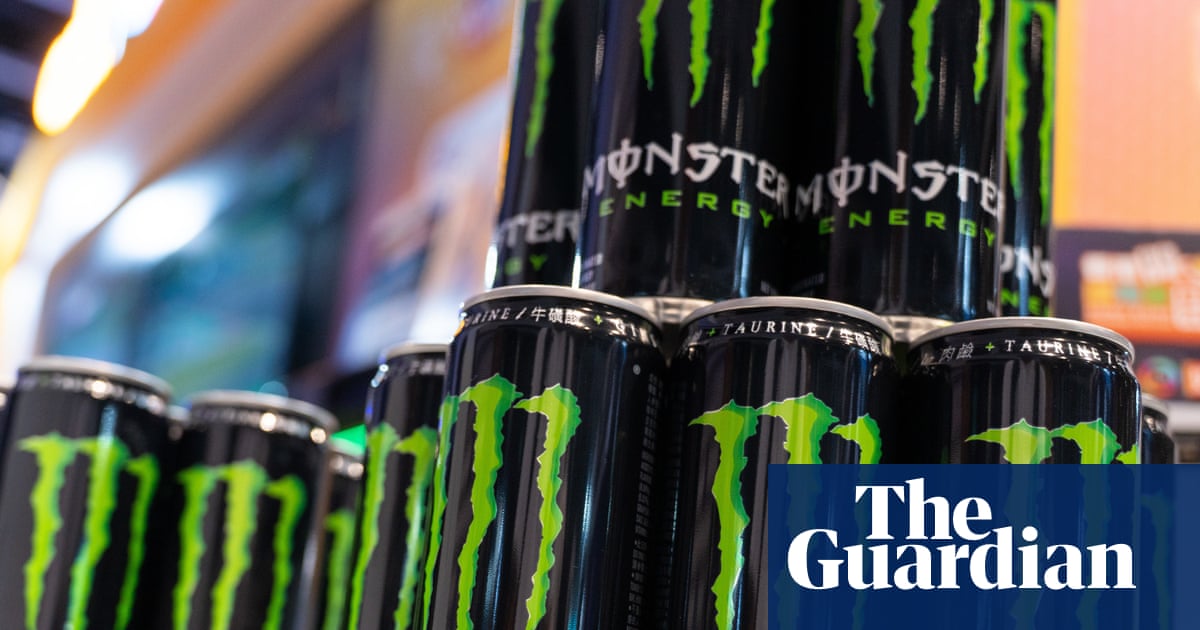Under-16s in England will be banned from buying energy drinks such as Red Bull and Monster because they fuel obesity, cause sleep problems and leave them unable to concentrate.
Health experts, teaching unions and dentists welcomed the ban and said it would boost children and young people’s health. It fulfils a pledge Labour included in its manifesto for last year’s general election.
“How can we expect children to do well at school if they have the equivalent of a double espresso in their system on a daily basis?”, said Wes Streeting, the health secretary.
“Energy drinks might seem harmless but the sleep, concentration and wellbeing of today’s kids are all being impacted, while high sugar versions damage their teeth and contribute to obesity.”
Shops, cafes, restaurants and websites will be prohibited from selling energy drinks containing more than 150mg of caffeine per litre to anyone under 16. That will affect drinks such as Red Bull, Monster, Relentless and Prime Energy and force their makers to reformulate their products.
For example, a 250ml can of Red Bull contains 80mg of caffeine, the same as one espresso or two cans of cola. Tea, coffee and soft drinks containing lower amounts of caffeine will be unaffected.
It is unclear when sales to under-16s – including from vending machines – will become illegal. The ban will be done using secondary legislation under the Food Safety Act 1990.
Supermarkets voluntarily stopped selling the drinks to under-16s in 2018. But some smaller convenience stores still allow under-16s to buy them. Drinks containing more than 150mg of caffeine per litre already carry warning labels that they are “not suitable for children”.
“High-caffeine energy drinks have no place in children’s hands. This is a common sense, evidence-based step to protect children’s physical, mental and dental health”, said Katharine Jenner, the director of the Obesity Health Alliance.
The success of preventing young people buying alcohol and cigarettes showed that age-based restrictions work, Jenner added. “Age-of-sale policies like this have a proven record of reducing access to products that are not suitable for children.”
Teachers have voiced concern about how energy drinks have left young children “bouncing off the walls in lesson time” after consuming them on their way to school.
Bridget Phillipson, the education secretary, said the move would help tackle the “scourge of poor classroom behaviour”, which is caused in part by “the harmful effects of caffeine-loaded drinks”.
Research by the NASUWT union found 71% of teachers worry about pupils misusing energy drinks at school and 70% while elsewhere.
“The drinks create a situation in which pupils can’t focus, can’t sit still and just think it’s cool to drink them”, one teacher said. Another said: “Energy drinks make it very difficult for students to focus and engage with learning and seem to make students noisier and agitated.”
Matt Wrack, the union’s general secretary, said under-16s will still be able to get the drinks from parents or other adults, despite the ban.
Dentists urged the government to go further. The ban should be extended to include zero and low-sugar energy drinks to help tackle tooth decay, the British Dental Association said.
“Products that are habit-forming, highly acidic and can contain over 20 teaspoons of sugar have no place on the menu for children”, said Eddie Crouch, the association’s chair.
Dr Kawther Hashem, a lecturer in public health nutrition and head of research and impact at Action on Sugar, said trading standards officers would have to enforce the ban to ensure it worked.
Gavin Partington, the director general of the British Soft Drinks Association, said firms do not market or promote the drinks to under-16s.
He added: “Our members have led the way in self-regulation through our longstanding energy drinks code of practice.
“Our members do not market or promote the sale of energy drinks to under-16s and label all high-caffeine beverages as ‘not recommended for children’, in line with and in the spirit of this code.
“As with all government policy, it’s essential that any forthcoming regulation is based on a rigorous assessment of the evidence that’s available.”
